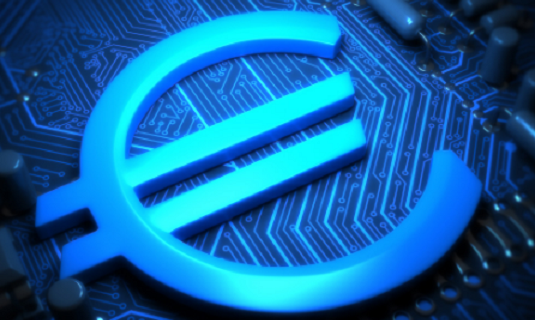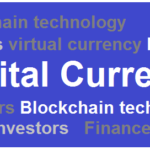A digital euro

The ECB, as guardian of the euro, provides currency in two forms: we issue banknotes and we transfer electronic deposits to banks and other financial institutions.
Digitalisation has spread to every corner of our lives and transformed how we pay. In this new era, a digital euro would guarantee that citizens in the euro area can maintain free access to a simple, universally accepted, safe and trusted means of payment.
A digital euro would be an electronic form of central bank money accessible to all citizens and firms – like banknotes but in a digital form. It is not meant to replace cash, but rather to complement it. Together, they give people more choices about how to pay, and make it easier for them to do so, increasing financial inclusion.
The Eurosystem will continue to ensure that all citizens have access to euro banknotes and coins across the euro area.
“The euro belongs to Europeans and we are its guardian. We should be prepared to issue a digital euro, should the need arise.”
Christine Lagarde, President of the ECB
Why a digital euro?
A digital euro would make your daily payments faster, easier and more secure. It could support the digitalisation of the European economy and actively encourage innovation in retail payments.
The ECB and the national central banks of the euro area are exploring the benefits and risks so that money continues to serve Europeans well.
What are other benefits of a digital euro?
A digital euro would preserve the benefits that the euro provides to all of us. It would help to deal with situations in which people no longer prefer cash.
It would help cushion the impact of extreme events – such as natural disasters or pandemics – when traditional payment services may no longer function. It could also be crucial if people were to turn to foreign digital means of payment, which might undermine financial stability and monetary sovereignty in the euro area.
When will it be ready?
During the preparation phase, we are working on the concept, starting practical experimentation on possible designs, and discussing with stakeholders and international partners. Towards the middle of 2021 we will decide whether to launch a digital euro project. This will be followed by an investigation phase on user requirements and service providers.
It would take time to develop a safe, accessible and efficient digital currency. We will ensure that the systems we use to pay keep up with the needs of the people who use them.
“We need to make sure that our currency is fit for the future. Inaction is not an option.”
Fabio Panetta, ECB Executive Board Member
What might it look like?
It is too early to identify any specific type of digital euro. Experts from the ECB and the national central banks of the euro area have laid down a number of basic requirements for a digital euro, such as easy accessibility, robustness, safety, efficiency, privacy and compliance with the law. These will help us to define what it might look like.
Even if a digital euro has not been necessary so far, we should be ready if and when developments make one necessary.
Will the ECB manage a digital euro?
The ECB is the custodian of the euro, be it as banknotes or in digital form, on behalf of the people of Europe. We want to make sure the value of our money is preserved and that any form of digital euro is ultimately safeguarded and regulated by the central bank.
Whatever the design and the functioning of a digital euro, it would be an electronic form of central bank money, accessible to all citizens and firms – like banknotes but in a digital form – to make their daily payments in a fast, easy and secure way.
Why would a digital euro not be a crypto-asset?
Crypto-assets are fundamentally different from central bank money: their prices are volatile because they lack any intrinsic value and there is no reliable institution backing them.
People using a digital euro would have the same level of confidence as with cash, since they are both backed by a central bank, which is something crypto-assets such as stablecoins cannot provide.
A digital euro for the digital era
A digital euro would be a digital symbol of progress and integration in Europe, said Executive Board member Fabio Panetta when presenting the report on a digital euro. Since the introduction of the euro, the ECB has been responsible for preserving citizens’ trust in our currency. Together with cash, a digital euro would be accessible to all and offer greater choice and easier access to ways of paying.
The European Central Bank has launched a public consultation relevant to to this. Have your say by 12 January 2021. Follow this link.
Source: European Central Bank





























